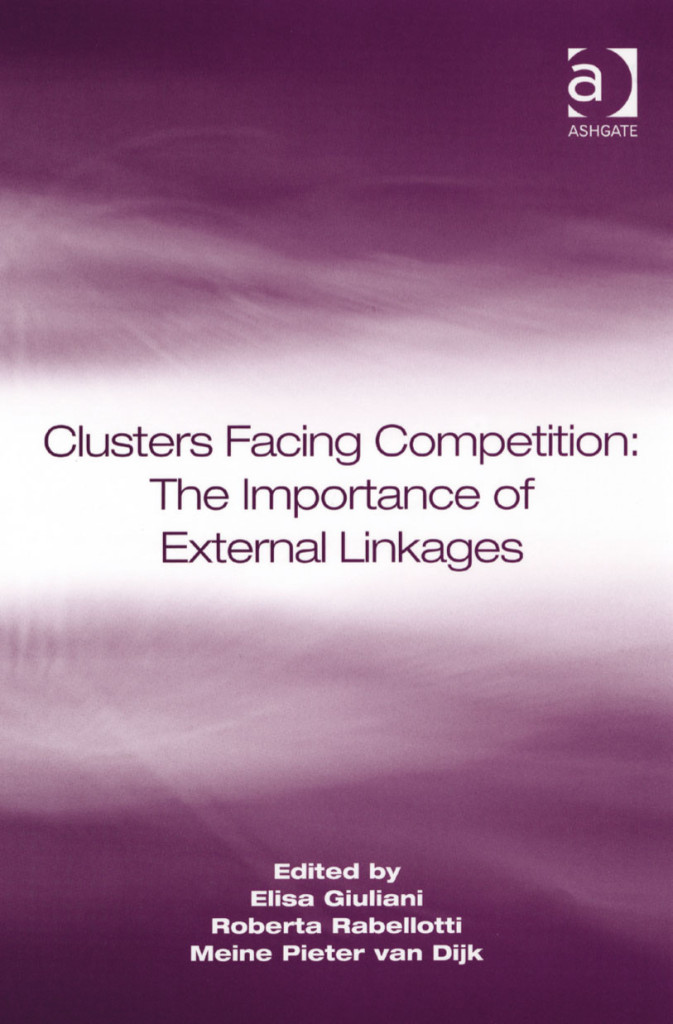Published by Ashgate
Edited with Elisa Giuliani and Meine Pieter van Dijk
The book is a collection of papers on clusters in developing countries. The book explores the external sources of industrial cluster competitiveness and examines how they complement, integrate and substitute local, intra-cluster networks. The novelty of this book is to merge the cluster approach with two other conceptual approaches which have become increasingly popular in cluster and development studies: on the one hand, the Global Value Chains and their role in cluster upgrading processes; on the other, the National Systems of Innovation (NSIs) and their role in supporting the development of clusters in a national territory. The book explores these issues with empirical evidence from different countries in Latin America, Asia and the industrialized world.
«This book provides numerous and timely insights into new strategies for enhancing the competitiveness of firms and local clusters in the global economy. Replete with in-depth case studies across a broad range of industries and countries, this volume is must reading for anyone seeking to identify pragmatic as well as effective responses to the challenges of international competition today.»
Gary Gereffi,
Professor, Duke University, Durham, NC / USA
You can buy the book here



